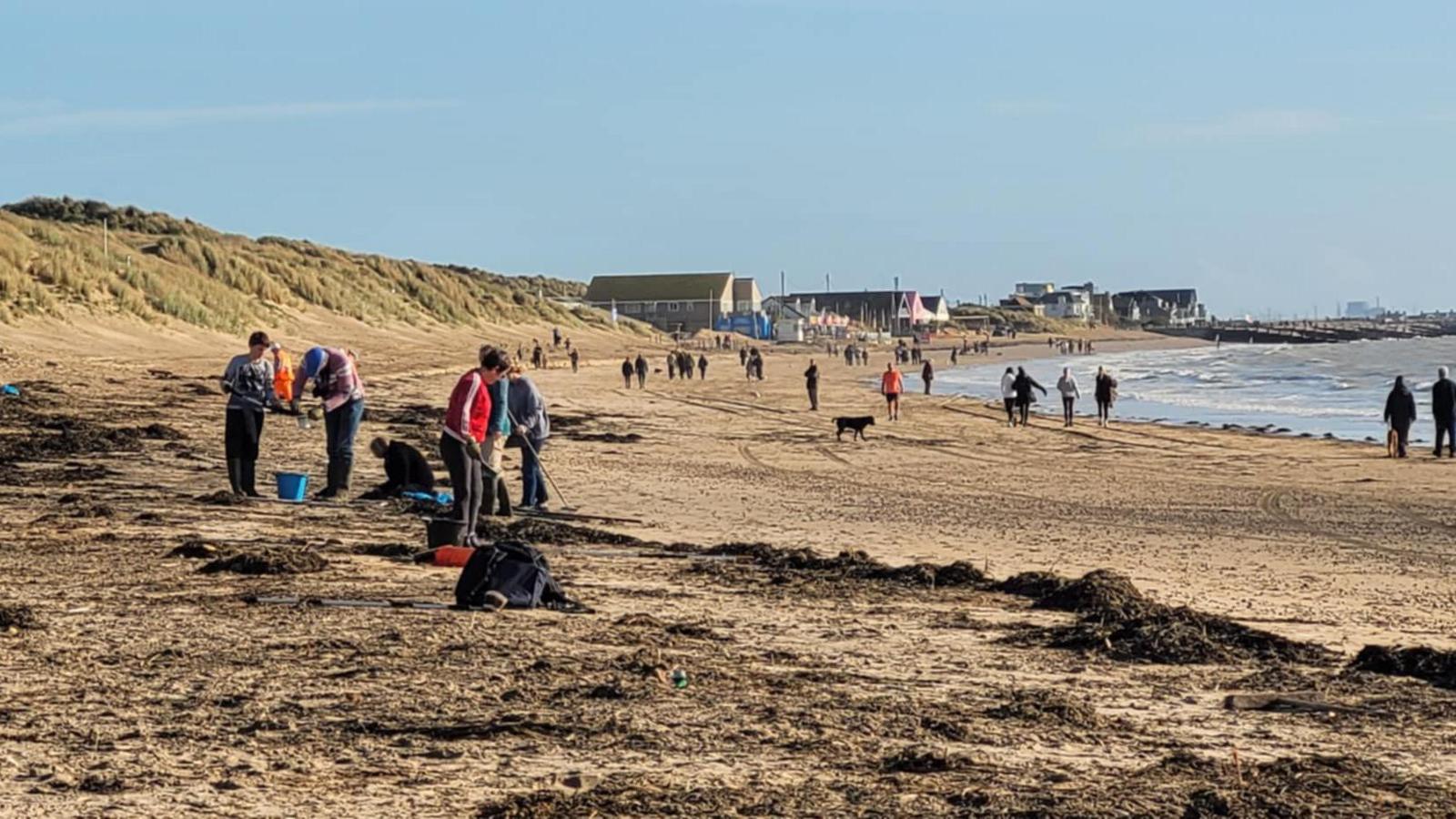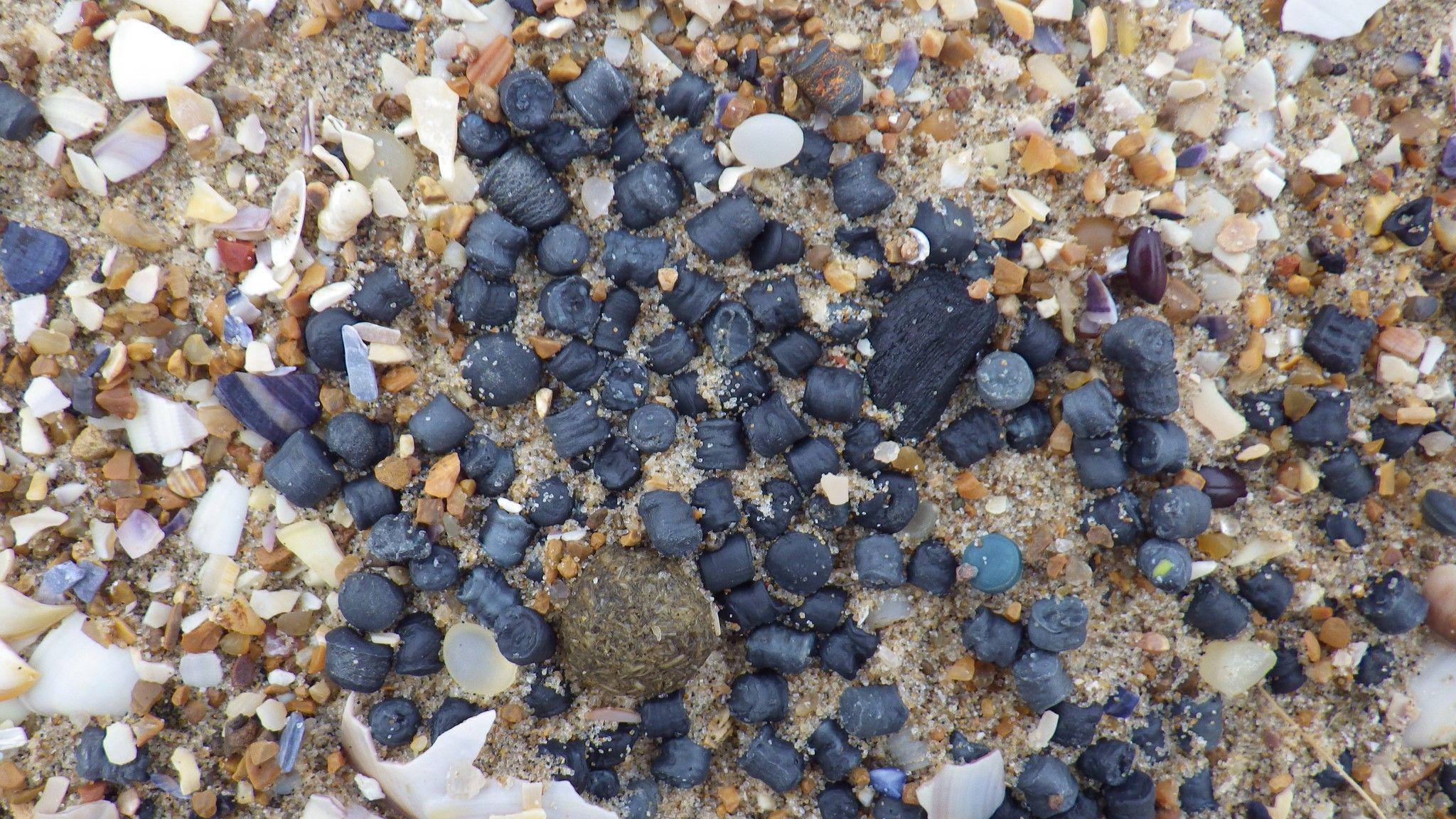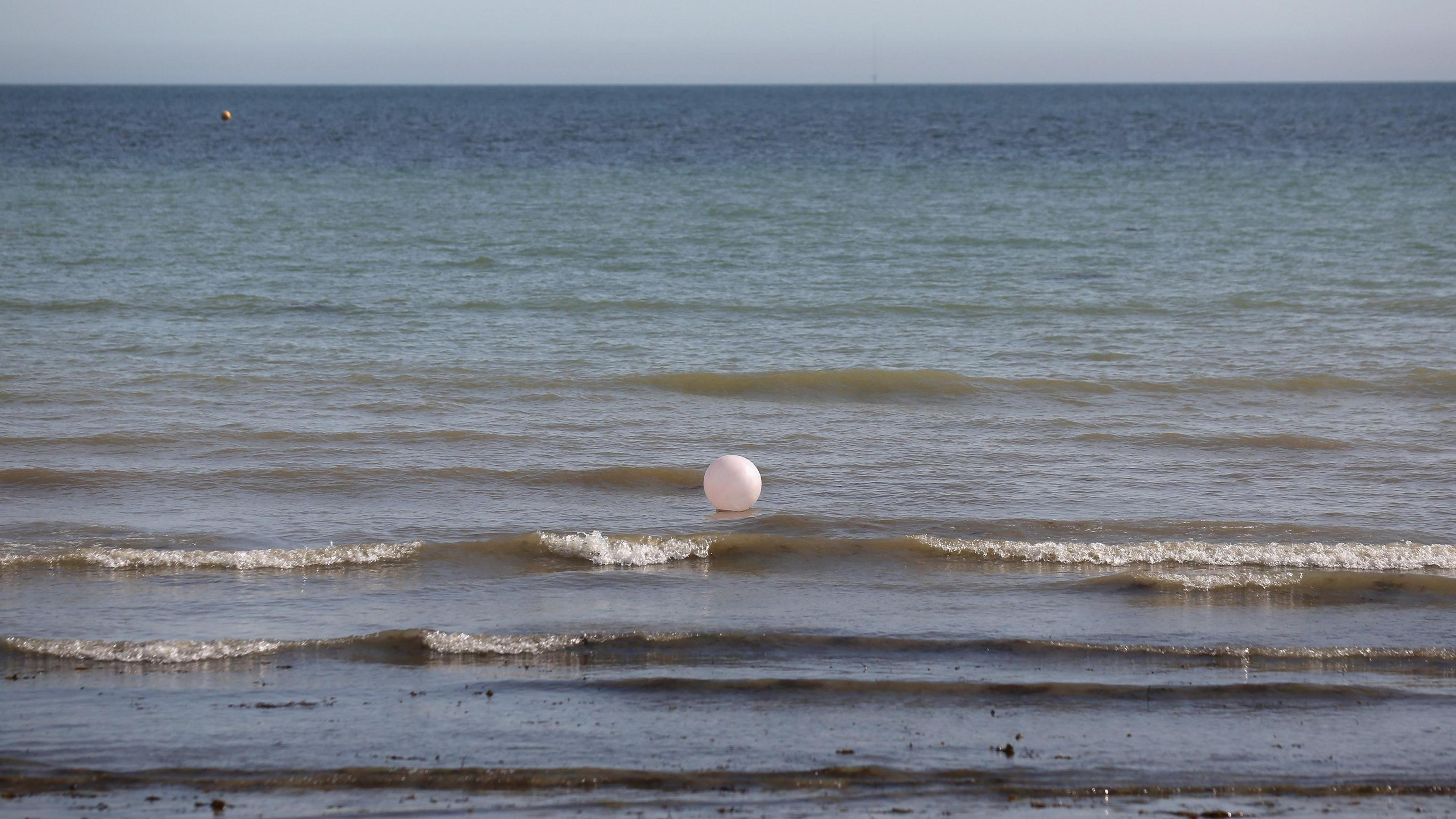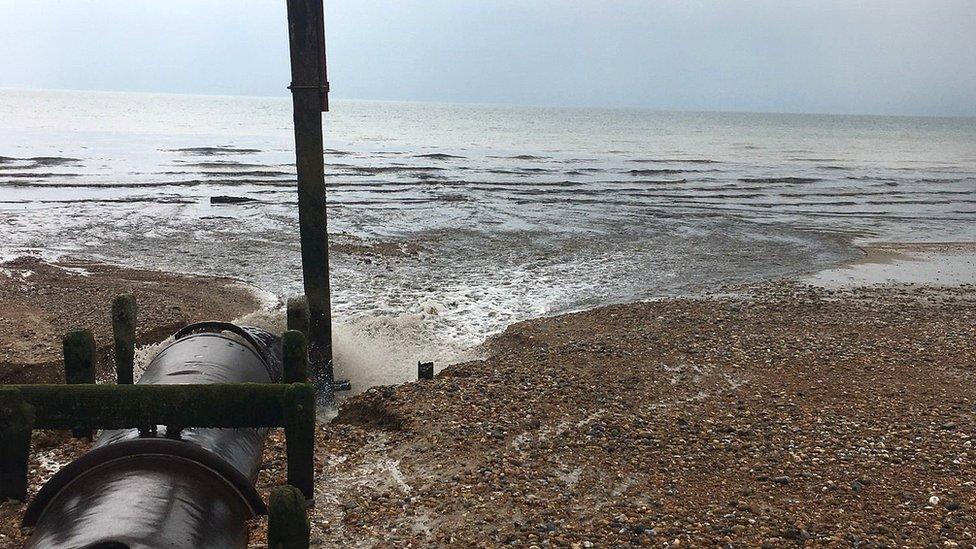Large quantities of plastic pellets wash up on beach

The clear-up operation at Camber continued on Sunday
- Published
Large quantities of small plastic pellets have washed up on an East Sussex coastline causing a pollution incident, a council has said.
The pellets, commonly known as biobeads, have come ashore in Camber, according to Rother District Council.
The authority said it was "not aware of any concerns regarding public health" but advised dog owners to keep them under supervision to stop them eating the pellets.
"It's unclear where the pollution has come from and investigations are ongoing," a council spokesperson said.
The statement added: "Our officers are currently inspecting the shorelines to assess the level of impact across local beaches.
"We can then determine the scale of the incident and respond accordingly."
A spokesperson for the Environment Agency said: "We are aware that a large number of plastic pellets have washed up along a stretch of coastline in East Sussex which includes Camber Sands.
"We are providing advice and guidance to Rother District Council, which has employed contractors to carry out a clean-up operation.
"We are working with other responders to identify the source of the pollution."
Meanwhile, Southern Water said: "We are working to investigate the source of plastic beads which have washed up.
"We've conducted water quality sampling on the beach, which has shown no impact to environmental water quality."

Large quantities of the plastic pellets have washed ashore in East Sussex
Helena Dollimore, MP for Hastings and Rye, said residents are working to remove as many beads as possible, "but it's a race against time".
She added: "Southern Water must urgently establish if their local wastewater plants could be the source of these bio-beads, and I've asked them to dedicate all available resources to supporting the clean-up operation in the meantime."
The non-profit organisations Nurdle and Strandliners, as well as council officers, are working on the removal and clean-up operation.
The council said further updates would be provided as more information became available.
Andy Dinsdale, from Strandliners, said: "Millions of these 5mm plastic pellets are used in wastewater treatment works for cleaning water.
"This is catastrophic for the fragile strandline and dune habitats at Camber."
Rye resident, Juliet Duff, who helped with the clear-up operation, said the situation was "terrible".
"The pollution covers about a mile and a half of the beach," she said.
"We have been collecting the pellets up by hand and with dustpan and brush."
Follow BBC Sussex on Facebook, external, on X, external, and on Instagram, external. Send your story ideas to southeasttoday@bbc.co.uk , external or WhatsApp us on 08081 002250.
Related topics
- Published10 January 2024

- Published6 September 2022
